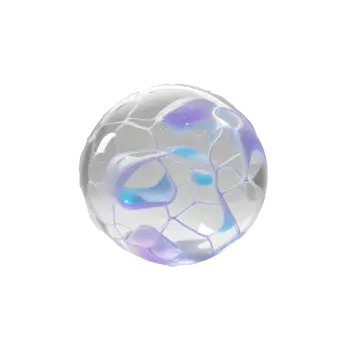What is the menstrual cycle?
The menstrual cycle is a periodic process that women go through every month. It is a combination of biological and hormonal changes that prepare the body for a possible pregnancy. The menstrual cycle can be divided into three main phases: the follicular phase, the ovulatory phase and the luteal phase.
The follicular phase
The follicular phase is the first phase of the menstrual cycle and begins with the first day of menstruation. During this phase, hormones such as follicle-stimulating hormone, FSH, and estrogen are produced, which stimulate the ovaries to produce follicles. A follicle contains an egg and prepares it for future ovulation. Estrogen levels gradually increase during this phase and cause the endometrium to grow and thicken.
The ovulation phase
The ovulation phase is the second phase of the menstrual cycle and usually occurs between days 12 and 16. During this phase, a mature egg is released from one of the ovaries. Ovulation is triggered by an increase in luteinizing hormone, LH, and estrogen. This is the most fertile period in the menstrual cycle when a woman can become pregnant.
The luteal phase
The luteal phase is the last phase of the menstrual cycle and occurs after ovulation. During this phase, the hormone progesterone is produced to prepare the uterine lining for a possible pregnancy. If fertilization does not occur, the production of progesterone and estrogen decreases, which leads to rejection of the endometrium and menstruation.
Hormonal changes during the menstrual cycle
During the menstrual cycle, women's hormone levels undergo fluctuations that can affect their well-being and health. The main hormones involved in the menstrual cycle are estrogen, progesterone and luteinizing hormone (LH).
Estrogen
Estrogen is one of the most important hormones in the menstrual cycle. It is responsible for stimulating the growth of the uterine lining and preparing the body for a possible pregnancy. During the follicular phase, estrogen levels gradually increase and reach their highest level just before ovulation. After ovulation, the estrogen level gradually decreases.
Progesterone
Progesterone is another important hormone in the menstrual cycle. It is mainly produced during the luteal phase and helps preserve the uterine lining and prepare the body for a possible pregnancy. If fertilization does not occur, the production of progesterone decreases, which leads to rejection of the endometrium and menstruation.
Luteinizing hormone (LH)
Luteinizing hormone (LH) is a hormone that plays a crucial role in ovulation. It is produced by the pituitary gland and stimulates the ovaries to release a mature egg. LH levels peak just before ovulation and then decline.

So the menstrual cycle can affect both health and well-being
The menstrual cycle can affect women's health and well-being in different ways. Some women may experience physical and emotional changes during the menstrual cycle, while others may not notice any major differences. Here are some of the most common ways the menstrual cycle can affect health and well-being:
Physical symptoms
Many women experience physical symptoms during the menstrual cycle. These can include abdominal pain, back pain, headache, breast tenderness and bloating. Some women may also experience increased fatigue and sleep disturbances during certain phases of the menstrual cycle.
Strength and performance
Studies have shown that hormonal changes during the menstrual cycle can affect women's strength and performance. Some women may experience increased muscle strength and endurance during certain phases of the menstrual cycle, while others may feel weaker or less energetic.
Hormonal changes during the menstrual cycle
Hormonal changes during the menstrual cycle can also affect women's mood and emotional state. Some women may experience increased irritability, anxiety or depression during certain phases of the menstrual cycle.
Health and wellbeing
A stable and regular menstrual cycle is considered an indication of good health in women. The menstrual cycle can also be a sign of hormonal balance and reproductive health. If a woman experiences irregularities in her menstrual cycle or absence of menstruation, it may be an indication of underlying health problems such as hormonal imbalance or reproductive disorders.
























